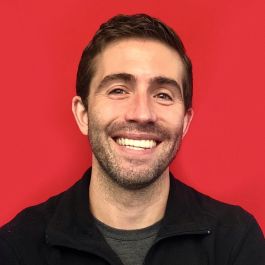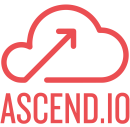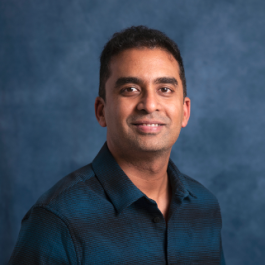Sean Knapp remembers what it was like to be in Silicon Valley in 1999. The dot-com bubble was still intact as internet startups continued to emerge and investor interest swelled across the Bay Area.
During this historic period of tech growth, Knapp was studying in the storied halls of Stanford, where he earned both his bachelor’s and master’s degrees in computer science. After beginning his career at Google as a software engineer, Knapp co-founded Ooyala with two coworkers at the age of 26, serving as CTO and chief product officer.
And then the Great Recession took hold, marking a pivotal moment in Knapp’s career.
“Navigating the challenges of 2008 not only taught me deeper lessons in discipline and perseverance but also provided tremendous perspective,” he said.
As CEO and Founder at Ascend.io, Knapp leverages the lessons he learned during this economic crisis — particularly those related to empathy, collaboration and resilience — in order to drive innovation and growth both among his employees and the customers they serve.
Knapp isn’t the only San Francisco-based leader who has learned crucial lessons throughout his career.
Nirmal Selvaraj joined Ancestry.com as an engineering manager in 2010, right before at-home genetic testing kits soared in popularity. From there, he took on various roles at Amazon and Instacart before landing his current position as an engineering director at Grammarly.
Over the years, Selvaraj has gained a deep understanding of user growth as well as the importance of learning from others and sharing knowledge in return. Embracing a continuous-learning mindset, he strives to give his team members the confidence to build the greatest user experience possible.
“It’s rewarding to build and design a high-functioning team, empowering everyone to come together and solve user problems successfully,” Selvaraj said.
Built In San Francisco caught up with Knapp and Selvaraj to learn more about their professional journeys, how they keep up with the latest tech trends and the exciting projects their teams are working on.
Ascend.io’s platform enables teams to build intelligent data pipelines that are designed to detect and respond to change, ensure data quality and efficiently use cloud resources.
How has your professional journey shaped you into the leader you are today?
I started my career at Stanford in 1999 — an exciting time to be in Silicon Valley. I earned my undergraduate and master’s degrees in computer science while competing in cross country and track and field. Balancing the student-athlete schedule taught me a tremendous amount of discipline, which has served me well in my professional life.
I joined Google as an engineer when the company had around 1,000 employees and the opportunities were practically limitless, as long as you had the stamina to pursue them. At 26 years old, I co-founded Ooyala with two coworkers, where I served as CTO and chief product officer. Navigating the challenges of 2008 not only taught me deeper lessons in discipline and perseverance but also provided tremendous perspective. From this time, we emerged stronger and grew to nearly 500 people before being acquired. Shortly after, we acquired two companies. This experience gave me a unique and valuable perspective, having sat on both sides of the table in such a short period of time.
These experiences shaped my leadership style, emphasizing collaboration, empathy and resilience in the face of adversity. Now, as the CEO of Ascend.io, I apply these lessons to drive innovation and growth for our company and customers.
Tech moves quickly. How do you stay ahead of the curve, and what new technologies are you excited about?
Not only does tech move quickly, but the rate of change also increases. To stay ahead of the curve, I read a lot of articles, experiment with a lot of products and technologies, and talk to many others across the industry. I have to be careful, as I could easily fill all my days exploring and learning and have no time left for applying those learnings to actual value creation, so I timebox my explorations to a subset of my free time and focus.
Participating in Ascend.io’s quarterly 48-hour hackathons is a fantastic outlet for me, as it lets me go deeper with new technologies and produce workable prototypes of new ideas. Better still, it fosters an amazing culture of innovation within the company. Our hackathon showcase is my favorite holiday of the year and comes with exciting gifts.
Looking forward, I’m particularly excited about AI in data engineering. I believe that within two to three quarters, a talented individual skilled in AI will outperform a team of five to 10 who don't use AI, marking a significant industry shift. This vision underscores the importance of embracing AI, fostering a company culture proficient in harnessing its potential and delivering products for our customers that do the same.
I believe that within two to three quarters, a talented individual skilled in AI will outperform a team of five to 10 who don't use AI.”
What are the biggest tech projects your team is working on this year?
This year, Ascend.io is focusing on key projects aimed at creating significant value for our customers and staying at the forefront of the data engineering industry. Given the current economic backdrop, our primary goal is to help our customers reduce data costs by continuously applying even greater levels of intelligence and optimization to their data pipelines.
Another significant project is implementing data mesh principles, which promotes decentralized data architecture for increased agility and scalability across data teams. By empowering individual teams to take ownership of their data domains, we can create a more collaborative and efficient data ecosystem.
Lastly, we’re very intent on weaving AI throughout our product offering to enhance platform capabilities and provide even more intelligent automation and insights. By leveraging AI, we aim to make Ascend.io the go-to solution for intelligent data pipelines.
Grammarly’s AI-powered writing assistant helps both individuals and teams refine their communication skills.
How has your professional journey shaped you into the leader you are today?
I started my career as a software engineer and moved to engineering management once I realized I could empower others to lead and solve problems. Over the past decade, my experiences at Ancestry.com, Amazon and Instacart allowed me to immerse myself deeply in the concept of user growth. I learned the importance of interacting with and learning extensively from others and sharing my knowledge through talks and mentorship in return.
Throughout my career, I’ve realized the importance of understanding the business impact generated by engineering solutions through an entrepreneurial lens. For example, I ask myself questions such as, “With limited time and resources, how do you solve challenging problems with the right trade-offs?” This curiosity is what motivated me to take an active role in the user-growth space and made me excited to join Grammarly.
My career path has allowed me to become an engineering leader with a strong passion for driving user growth by building high-quality user experiences across various platforms. I’m passionate about hiring, growing, coaching and mentoring engineers and other managers.
Tech moves quickly. How do you stay ahead of the curve, and what new technologies are you eyeing for future projects?
Continuous learning helps me stay ahead of the technology curve. I focus on learning from three main sources, with one of them being my team. We’re here to learn from each other, and this helps all of us continuously stay ahead of the curve.
I also learn from tech leaders who are innovating on behalf of their organizations. I do this by connecting with them one-on-one or listening to their talks and podcasts.
Lastly, I stay up to date on industry news. I read books and articles that describe how technology is used to solve real-world problems. I’ve recently read a lot about generative AI and the underlying technologies that power it. What interests me about this topic is seeing how it can solve real-world problems — particularly those associated with a communication assistant, such as Grammarly. If we use generative AI correctly, we can create a new offering coupled with the core user value that our product is known for and make it ubiquitous for everyone to use regularly. This technology is exciting yet somewhat complex and controversial, and it’s critical to navigate this carefully so that we can provide value while earning the trust of our users.
If we use generative AI correctly, we can create a new offering coupled with the core user value that our product is known for and make it ubiquitous for everyone to use regularly.”
What are the biggest tech projects your team is working on this year?
This year, I’m particularly excited about using machine learning to drive personalization within product and lifecycle marketing experiences. While personalization isn’t new to our growth teams, it’s an area we aim to strengthen. This investment can give us significant returns in our ability to understand the needs of our users and cater to them in the most personalized way possible. We’ll be leveraging the benefits of ML-based personalization within our product experience and lifecycle marketing, such as email and notifications. This will help us personalize timing, offers, messages and other high-value features that our users can enjoy as they continue to use our product.









